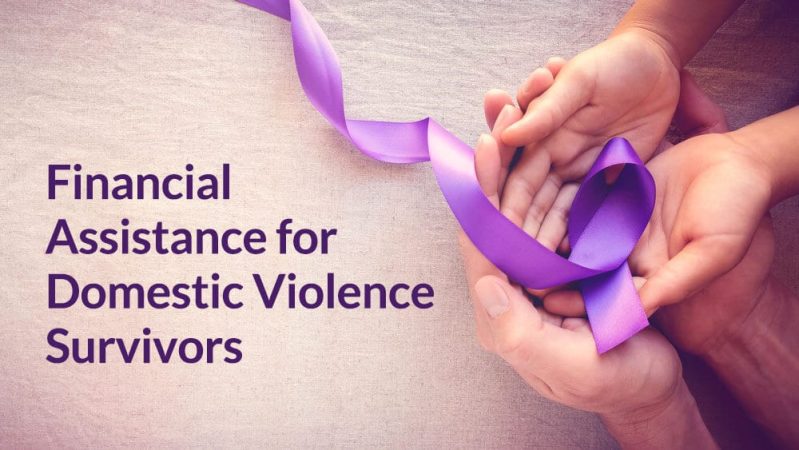Seeking Compensation for Domestic Violence Survivors
Understanding Domestic Violence

Domestic violence is a serious issue that affects countless individuals worldwide. Survivors of domestic violence often suffer physical, emotional, and financial consequences as a result of the abuse they endure. Seeking compensation can be an important step towards healing and rebuilding their lives. This article will explore the process of seeking compensation for domestic violence survivors, highlighting their legal rights, available avenues, and the challenges they may face. By understanding these aspects, survivors can navigate the path towards justice and recovery.
Understanding Domestic Violence
Definition of Domestic Violence
Domestic violence refers to any pattern of abusive behavior used by one person to gain power and control over another in the context of an intimate relationship. It can manifest in various forms, including physical, sexual, emotional, and financial abuse. The aim is to establish dominance and instill fear in the victim.
Types of Domestic Violence
Domestic violence can take many forms, such as physical assault, sexual abuse, emotional manipulation, financial control, and verbal threats. These actions can cause severe harm to the survivor’s physical and mental well-being, leaving long-lasting scars.
Impact of Domestic Violence
Domestic violence has far-reaching consequences for survivors. It can lead to physical injuries, psychological trauma, and financial instability. Survivors may experience anxiety, depression, post-traumatic stress disorder (PTSD), and a decreased sense of self-worth. Seeking compensation can help address the financial burden and provide a sense of justice for the survivor.
Legal Rights for Domestic Violence Survivors
Seeking Compensation
Domestic violence survivors have the right to seek compensation for the harm they have endured. Compensation can include medical expenses, therapy costs, lost wages, property damage, and pain and suffering. It aims to alleviate the financial strain caused by the abusive acts and provide a means for survivors to rebuild their lives.
Available Legal Avenues
There are several legal avenues through which domestic violence survivors can seek compensation. They may file civil lawsuits against their abusers, pursue criminal charges, apply for victim compensation programs, or seek protection orders. Each option has its own requirements and procedures, and survivors should consult with legal professionals to determine the best course of action.
Steps to Obtain Compensation
Seeking compensation for domestic violence involves a series of important steps. By following these steps, survivors can strengthen their case and increase their chances of receiving the compensation they deserve.
Documentation and Evidence
It is crucial for survivors to gather and preserve evidence of the domestic violence incidents. This may include medical records, photographs of injuries, witness statements, and any documented communication with the abuser. Such evidence can substantiate their claims and support their case.
Reporting the Incident
Survivors should report the domestic violence incidents to the appropriate authorities, such as the police or domestic violence hotlines. Filing a police report creates an official record of the abuse, which can be valuable during legal proceedings. Reporting the incidents also helps protect others from potential harm.
Seeking Professional Help
Survivors should seek professional help to address the physical and emotional consequences of domestic violence. Medical professionals, therapists, and counselors can provide necessary support, document injuries, and offer expert testimony if needed.
Filing a Lawsuit
Survivors can file civil lawsuits against their abusers to seek compensation. They should consult with an experienced attorney who specializes in domestic violence cases. The attorney will guide them through the legal process, help build a strong case, and advocate for their rights in court.
Negotiating Settlements
In some cases, survivors and their attorneys may engage in settlement negotiations with the abuser or their legal representatives. Settlements can provide a faster resolution and avoid lengthy court proceedings. However, survivors should carefully consider their options and consult with their attorney before agreeing to any settlement terms.
Challenges in Seeking Compensation
While seeking compensation is a crucial step for domestic violence survivors, it is not without challenges. Survivors may encounter various obstacles throughout the process.
Financial Barriers
Survivors often face financial difficulties due to the abuse they have suffered. They may lack resources to hire an attorney or cover the costs associated with legal proceedings. Access to legal aid programs, pro bono services, or victim compensation funds can help mitigate these financial barriers.
Emotional Obstacles
The trauma of domestic violence can make it challenging for survivors to navigate the legal process. They may experience fear, anxiety, and a lack of confidence. Support from counselors, support groups, and loved ones can provide the emotional strength and encouragement survivors need to pursue compensation.
Legal Complexities
The legal system can be complex, and survivors may find it overwhelming to understand the intricacies of their case. Hiring an attorney with expertise in domestic violence and compensation claims is essential. They can provide guidance, explain legal concepts, and ensure survivors’ rights are protected throughout the process.
Support for Domestic Violence Survivors
Recognizing the multifaceted needs of domestic violence survivors, several organizations and resources offer comprehensive support.
Organizations and Resources
Numerous organizations specialize in assisting domestic violence survivors. They provide resources, legal aid, counseling, and support to help survivors navigate the compensation process. Examples include the National Coalition Against Domestic Violence (NCADV) and local domestic violence shelters.
Counseling and Therapy
Survivors can benefit from counseling and therapy services to address the emotional and psychological trauma resulting from domestic violence. Licensed therapists and counselors can help survivors heal, regain self-esteem, and develop coping mechanisms.
Shelter and Safety
Domestic violence shelters offer a safe haven for survivors and their children, providing protection from further harm. These shelters provide temporary accommodation, access to essential resources, and support from trained staff.
Conclusion
Seeking compensation for domestic violence survivors is an essential step towards justice, healing, and rebuilding lives shattered by abuse. Understanding the legal rights, available avenues, and challenges involved is crucial for survivors to navigate this process effectively. By accessing support services and seeking professional guidance, survivors can increase their chances of obtaining the compensation they deserve.




